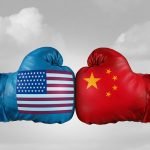If you follow these blogs, you realize that the Food and Drug Administration (FDA) doesn’t exactly have a flawless record in the “good-judgment department”–at least, in my view. Recently, for instance, there was the matter of the agency’s refusal to ban bisphenol A (BPA) from water and baby bottles, in spite of numerous reputable studies proving that the chemical causes serious health problems (and even in spite of the fact that places like WalMart and Toys R Us decided to pull the stuff from their shelves over safety concerns). I also recently covered the issue of the FDA’s proposal to weaken labeling requirements on irradiated produce, in spite of the potential for undermining the quality and safety of such foods. These have been preceded by numerous stories alluding to blunders large and small within the agency.
Well, it appears the FDA reads my columns and has decided to do something about it. Unfortunately, in typical FDA fashion, they’ve done it badly and now face a scandal within their ranks that adds fuel to the fires of recrimination. The hubbub centers on a public image problem that was exacerbated when the agency decided to respond to the avalanche of criticism coming its way of late by hiring a public relations firm to “put a sheen on its image.” I could probably end the blog here – with the statement that the FDA hired a PR firm to improve its image – but it gets worse. Instead of going through the legal channels to procure the services of such a PR firm–a process that requires putting the contract out to bid as per government regulations–the FDA gave the job to friends via a sneaky and fraudulent route.
According to an article in the Washington Post, the contract got handed over to a company called Alaska Newspapers, Inc., without going through the required bid process. Alaska Newspapers, Inc., is owned by indigenous (Native Alaskan) interests, so it gets a special exemption that allows it to win contracts without competing. Well, that certainly sounds noble, But the FDA didn’t really intend to let dinky Alaska Newspapers represent it. Instead, it made a secret deal with Alaska Newspapers to have the contract passed on to its chums at Qorvis Communications, a firm in Washington, D.C.–which, incidentally, also represents PhRMA, the pharmaceutical industry’s largest representative organization. Ouch!!
Rep. Bart Stupak (D-MI), the chairman of the House Oversight and Investigations Subcommittee, commented, “Even more serious than the waste of taxpayer dollars [allocated to saving the FDA’s public image rather than to regulate food and drugs effectively] is the possibility that FDA might have violated numerous federal procurement and contracting laws during the execution of this contract. It is disturbing to see the extent to which a private company was intimately involved in the formation of a contract by a federal agency. It is clear that the prime contractor in this case was only used as a vehicle to steer the contract to the public-relations firm of FDA’s choosing.”
Adding his two-cents, Professor Steven Schooner, who co-directs the government procurement law program at George Washington University, said, “The story line is as bad as anything I’ve ever heard. It’s not transparent. It’s not competitive. It’s not arm’s length.”
But incriminating as these comments are, they still leave out the most disturbing piece of the story–the bit about the federal agency maneuvering to use the same PR company as the drug companies it supposedly regulates. Can you spell “conflict of interest”? Ken Johnson, a PhRMA spokesman, said he wasn’t “aware that Qorvis had been doing work for the FDA.” Had he known, he said, “he would have expressed serious concerns.” (He also indicated that the Brooklyn Bridge was for sale, if anyone was interested.)
Not that conflict of interest is anything new to the FDA. Back a few years ago when the agency convened a panel of experts to vote on the safety of Vioxx and Celebrex, it appointed members to the panel who had considerable holdings in the drug companies in question. At the time, Sidney Wolfe, of the watchdog group Public Citizen, said, “The FDA has a pretty high threshold for conflict of interest. That is a serious problem. It isn’t as if you can’t find people.”
Transposing that statement to the current scenario–“it isn’t as if you can’t find a PR firm without ties to big pharma — a firm contracted through legal channels.” On the other hand, perhaps the more fundamental issue is this: just why does the FDA need to spend taxpayers’ money boosting its image in the first place if it’s actually doing the job we taxpayers fund it to do?
:hc












I’m a bit confused. When WAS the last time the FDA actually did the job we taxpayers fund it to do???
Thanks for exposing this kind of thing, Jon. The P in PR should stand for Propaganda. You would think this information would sell newspapers, so if there is a ‘free press’ in the US, why won’t this story run?